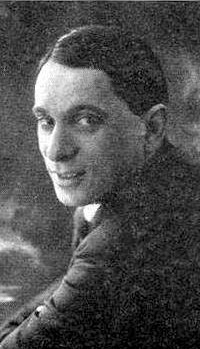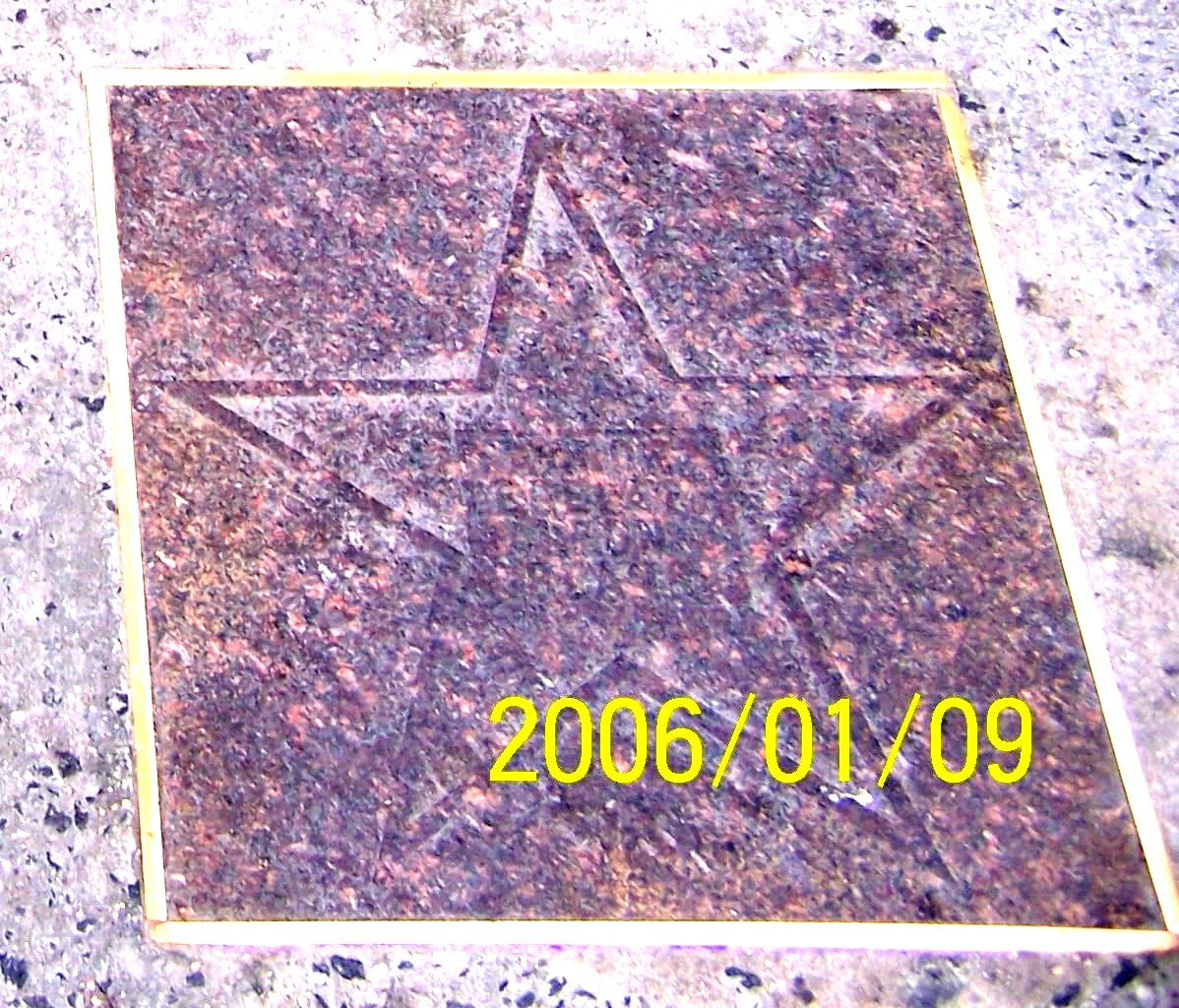|
|
|
Г
http://www.jewniverse.info/~yiddish_music/lebedeffaaron/index.html
Похоронен в театральной секции нью-йоркского кладбища Маунт-Хеброн.
LEBEDEFF, AARON, Yid. act.; b. Russia,
1873; d. N. Y. C, Nov. 8, 1960; in U. S.
since 1920; starred in many plays and
musicals on stage incl. Motke fun Slobodke,
A seder in Tel-Aviv.
In the years when the Yiddish theatre flourished in the United Stales one of the
most cheerful and original personalities in Yiddish musical comedy was Aaron
Lebedeff, Gifted with a lyric voice, an engaging stage presence, a unique zest
for improvisation, clowning and dancing, he undoubtedly had the longest career
as a juvenile song-and-dance man in the history of the New York theatre, Yiddish
or English. In 1936, Variety cited him, at the age of sixty-two, as "the world's
oldest juvenile"; in 1955, at eighty-two, he was still appearing in musicals in
what then remained of the Yiddish theatre.
The ever-young Aaron Lebedeff was born in Homel, White Russia in 1873. As a boy
he sang in the local choir, but since he showed no interest in study, his
parents, who kept a clothing shop, early apprenticed him to learn a trade. The
boy ran away from home to join a Russian theatre troupe touring Bohroisk. Minsk
and other cities. After hard times disbanded the group, he returned to Homel,
where he opened a dancing school and dabbled in amateur Yiddish theatricals.
When one of the early professional Yiddish troupes, headed by Lazar Bernstein,
passed through the town, Lebedeff begged for a job with the company and promptly
got one - combination chorus boy, porter, wardrobe assistant and prompter. It
was not long before he became a character actor, making his debut as the
Pipkincr Rav in Shomer's Baal Tshuva. Then he moved over to operetta, which gave
wider scope to his varied talents.
After many years on the road with travelling shows, he finally became a star in
Warsaw in 1912-13, where he was known as Der Litvisher Komiker. This was the
start of a lifetime career in the theatre, interrupted only by a brief period of
military service in Kerensky's Revolutionary Army in Harbin, Manchuria.
Eventually he gathered all his savings together to buy his way out of the army,
and began a long trek to the United Stales by way of Siberia. Manchuria, China
and Japan. All in all, he spent a year barnstorming in the Orient and in that
time managed to master one dialect of Chinese.
Whcn he finally arrived in New York in 1920. he scored an immediate personal
success at Boris Thomashcfsky's storied National Theatre in a play called Liovka
Molodez. Thus began sixteen years on Second Avenue, during which he played a
full season each year, never missing even a week. Ever gay, in his straw hat and
faultlessly tailored clothes, he seemed to many the Maurice Chevalier of the
Yiddish stage. He became famous for roles like The Rumanian Litvak, and though
after awhile his vehicles assumed a typed character, the audiences loved him.
The New York Times in a review in October 1932 commented that he delighted the
public in roles in which he was invariably "an ingratiating provincial who is
always the victim of misfortune in the first act, only to shine forth
resplendent with simoleons and a slick sennet in the closing act."
At sixty-one, when he was stilt playing romantic leads (albeit wearing a hat to
hide a receding hair fine), he divulged to a reporter for the New York American
his formula for perpetual youth: "Dress well, eat and drink what you like, and
remain constantly in love." Though he was surrounded by adoring females wherever
he went, he remained happily married to the actress Vera Lebedeff (Rebecca
Shehtman).
Even the rise of talking pictures and the decline of the Yiddish stage dimmed
his luster only slightly, for he went on to star m Yiddish vaudeville at the
National and Clinton Theatres, where Yiddish talkies and eight live acts shared
the bill. To list all the ephemeral Yiddish plays in which he appeared is almost
impossible. Among his notable musicals were My Malkele (1937) and Bublitchki
(1938) in which he co-starred with Molly Picon, Yankele Litvak, Yoshke Chvat,
Motke from Slobodke, Money Talks, (with Michael Michaclesko, 1952), The Magic
Melody (1953) and My Weekend Bride (1955). In 1953 he was one of the famous
Yiddish stars honored at a special anniversary performance for Israel Bonds at
the National Theatre (and the only one, true to his usual form, who was called
back for several encores).
It is interesting to note that Lebedeff wrote many of his Yiddish and English
lyrics himself. Most of the lines virtually defy translation, for they are
highly idiomatic, with a humor that is difficult to render into English. Ail the
songs breathe nostalgia and are magically evocative of the Russian-Rumanian
milieu and the immigrant world in New York. The allusions to food and drink are
legion; the homesickness is for the village life of the vanished prewar world.
For sheer exuberance and uninhibited merry-making, few performers can match
Aaron Lebedeff at his best.
link from Люси Левин
|
Манхэттен |
Аллея Звёзд Еврейского Театра The Yiddish Theater Walk of Fame Звездa "Аарон Лебедев - Леон Бланк" |
| Ист-Виллидж |
|
| Second Avenue | |
| @ Tenth Street | |
|
Аллея Звёзд Еврейского Театра была создана в 1984г. по инициативе Эйбa Либиволa. Она состоит из 28 квадратных гранитных плит со звёздами, в каждую из которых вписано одно или два имени. |

